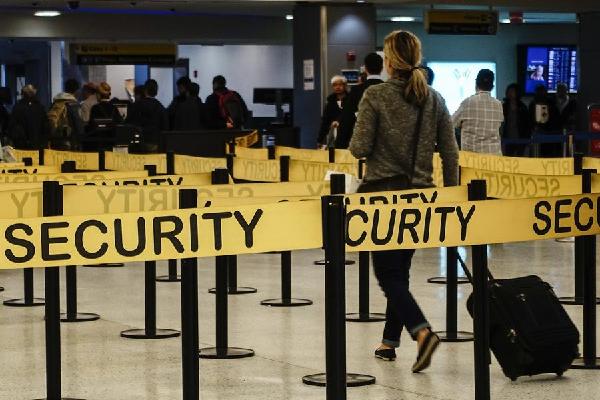Ebola screening starts at New York's JFK airport
Updated: 2014-10-12 07:56
(Agencies)
 |
| Passengers make their way in a security checkpoint at the International JFK airport in New York October 11, 2014. [Photo/Agencies] |
Traveler Bamgoura said she was handed a list of guidelines for passengers who were screened and allowed to enter. The sheet offers tips for self-monitoring and instructions for doctors treating patients with Ebola-like symptoms.
JFK is the entry point for nearly half of the roughly 150 travelers who arrive daily in the United States from the three West African countries, and those passengers amount to about one-tenth of 1 percent of all international daily arrivals at the airport, the CDC said.
Dr. Jeffrey Griffiths, an infectious disease expert at Tufts University School of Medicine, said the screenings "will incrementally pick up some people" and are a valuable tool to raise awareness about early detection and treatment of the illness.
SCREENING QUESTIONED
The CDC said the airport screening is just one aspect of an overall strategy to fight the spread of Ebola.
"No matter how many of these procedures are put into place, we can't get the risk to zero," said Martin Cetron, director of the CDC's Division of Global Migration and Quarantine. "This new entry-screening procedure is just one part of a multi-layered approach," he told the JFK news conference.
Even so, the screening has its critics.
Lawrence Gostin, who teaches global health law at Georgetown Law School, said such monitoring "had virtually no effectiveness" when used in Canada and Asia during the SARS outbreak in 2002.
In addition, travelers with a fever can evade detection by taking over-the-counter medication during the flight, he said.
People also could lie on questionnaires, said Dr. David Mabey, a professor at the London School of Hygiene and Tropical Medicine. "People may not fill them in very truthfully. They don't want to be delayed for hours," Mabey said.
Passengers are already screened when they depart from the three West African countries. In the two months since those screenings began, only 77 of the 36,000 screened travelers were denied boarding, the CDC said. Many of them were diagnosed later with malaria, and none with Ebola.
Thomas Eric Duncan, who died of Ebola in Dallas this week, was able to fly to the United States from Liberia because he didn't have a fever when screened before he departed.
Duncan filled out a questionnaire saying he had not been in contact with anyone infected with Ebola. Liberian officials have said Duncan lied on the questionnaire and had been in contact with a pregnant woman who later died. However, a friend of his family has said Duncan did not know the woman had Ebola.